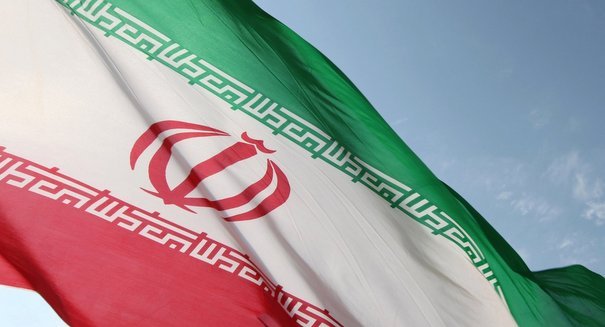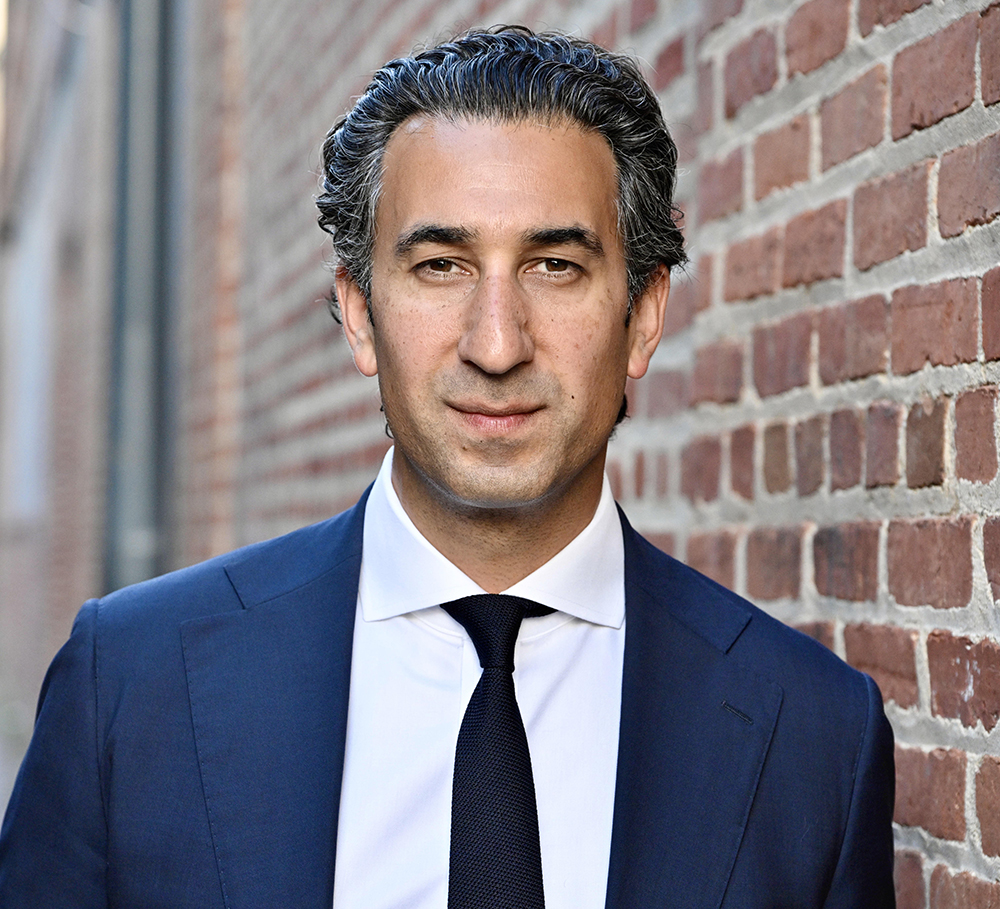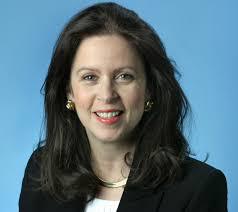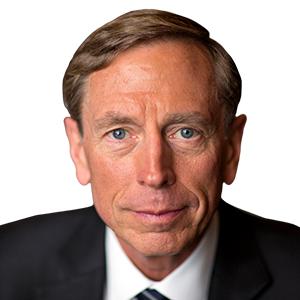Aaron David Miller, Karim Sadjadpour, Robin Wright
{
"authors": [
"Karim Sadjadpour"
],
"type": "legacyinthemedia",
"centerAffiliationAll": "dc",
"centers": [
"Carnegie Endowment for International Peace"
],
"collections": [
"Iranian Proliferation"
],
"englishNewsletterAll": "menaTransitions",
"nonEnglishNewsletterAll": "",
"primaryCenter": "Carnegie Endowment for International Peace",
"programAffiliation": "MEP",
"programs": [
"Middle East"
],
"projects": [],
"regions": [
"North America",
"United States",
"Middle East",
"Iran"
],
"topics": [
"Political Reform",
"Security",
"Foreign Policy",
"Nuclear Policy"
]
}
Source: Getty
Do Breakthroughs Mean the United States Can Do Business With Iran?
While the recent nuclear deal and exchange of prisoners has raised hopes of improved relations between the United States and Iran, little is likely to change domestically in the Islamic Republic.
Source: PBS’ NewsHour
JUDY WOODRUFF: For what all the weekend’s developments on Iran mean for the future of U.S.-Iran relations and Iran’s role in the region, I’m joined now by Robin Wright. She writes for “The New Yorker.” Her former research assistant at the Woodrow Wilson International Center was one of the Americans released by the Iranians.
Ray Takeyh, he was a senior adviser on Iran at the State Department during President Obama’s first term. He’s now a senior fellow at the Council on Foreign Relations. Reuel Gerecht, he’s a former case officer at the CIA. He’s now a senior fellow with the Foundation for the Defense of Democracies. And Karim Sadjadpour, he’s a senior associate at the Carnegie Endowment for International Peace.
And we welcome all of you to the program.
So, let me — let’s — let me ask you first about this release — and I will start with you, Karim — of these five Iranian-Americans. Was this inevitable, given the fact that this nuclear deal was being concluded? Was it just going to happen?
KARIM SADJADPOUR, Carnegie Endowment for International Peace: The timing wasn’t inevitable, but I think at some point, after three, four years in prison, it was inevitable that these folks were going to be released.And I think it’s important to note that there still is an Iranian-American in Evin prison in Tehran, Siamak Namazi. It is a very important case because is he someone who has been an energy consultant. He is very well-known by international corporations.
And I think as people see Iran, the sanctions have now been lifted, they are looking to do business with Iran. Siamak’s case is an important one, because I think that is going to continue to deter companies from doing business in Iran.
JUDY WOODRUFF: Reuel Gerecht, how do you see the decision on Iran’s part to release these people?
REUEL MARC GERECHT, Former CIA Officer: Well, I think the first thing you have to say is, it is a renewable pool. They can release hostages and take more.
Hostage-taking is as old as the Islamic Republic. So, I don’t think that this exchange is strategically very astute. I think the notion of trading essentially innocent Americans who were seized in Iran and allowing individuals who were convicted of sanctions violations, who were aiding, abetting illicitly the Iranian nuclear program and otherwise engaging in what you might call technical espionage isn’t wise.
And I think dropping people from Interpol, it sets a very, very bad precedent. And I’m sure the Iranians will abuse it in the future.
JUDY WOODRUFF: Robin, how do you see this swap?
ROBIN WRIGHT, The New Yorker: Well, I think both the nuclear agreement and the prisoner swap are probably very important developments in what has been a fraught relationship now for four decades.
It wasn’t perfect, but prisoner swaps, spy swaps have gone on through the ages. It’s not something new or different. Many of those who were released by the United States were convicted of crimes that are no longer technically illegal. So, it wasn’t at a huge cost.
The bigger picture, I think, is really important when it comes to what kind of cooperation we might have with Iran and others, notably Syria. Peace talks begin this month, and that is the next big challenge we face on whether we can really do business with Iran or not.
JUDY WOODRUFF: And I want to ask you all about that.
But, Ray Takeyh, what about this decision to swap these Iranian-Americans in prison for the Iranians in the U.S.?
RAY TAKEYH, Former State Dept. Official: The issue of American hostages always exercises an emotive burden, emotional burden on any U.S. president.
And it did so with Ronald Reagan when he essentially traded arms for American hostages in Lebanon. I think, as this deal unfolds, you begin to see the humanitarian aspects of it and the possible emotional burden it imposes on the president.
But as you step back from it, in hindsight, you begin to see the problematic aspects of it, which I think we all alluded to. For one thing, it violates the administration’s own red line. They had suggested that all these prisoners have to be released immediately, which is another way of saying unconditionally. And, essentially, then you see a trade take place.
And, also, money changed hands. So the components of a deal are problematic, but the humanitarian aspect of it are quite American.
JUDY WOODRUFF: You are saying money changed hands over these prisoners?
RAY TAKEYH: Well, there is a report of $1.7 billion going into some accounts that Iran had going back to shah’s time because of the disputed — because of the military sales and contracts and so forth.
So, that could be another aspect of this deal. But even if you just look at it from a prisoner-to-citizen hostage swap, it has problematic aspects to it, but you have to juxtapose that to the humanitarian aspects of it.
JUDY WOODRUFF: What does it say, Karim, about the balance of power in Tehran, about — you know, we are told there is the very conservative faction and the more moderate faction. Whatever — however it is described, what does it say about the power balance there?
KARIM SADJADPOUR: Well, I think we can’t underestimate the Iranian civil society and the vast majority of Iran’s 80 million population that is very eager for change and reconciliation with the outside world.
At the same time, we shouldn’t underestimate the forces of darkness in Iran, the supreme leader of the Revolutionary Guards, who are deeply entrenched. They haven’t gone anywhere. And they actually thrive in isolation. Rapprochement with the United States, international economic integration would be more of a threat to them than continued hostilities.
So, I think that fight will continue in Iran.
JUDY WOODRUFF: Regardless of this new deal.
Well, let me pick up on that, because, Reuel Gerecht, some people were surprised that this nuclear deal was implemented as quickly as it was. How do you read that? Why did Iran move as relatively quickly as they did? Or do you not see it as a relatively quick implementation?
REUEL MARC GERECHT: No, I think they moved quickly. I think people expected implementation day to be later, even as late, say, as July. They want the money. I mean, I think that’s pretty clear.
The price of oil keeps dropping. They need the money desperately. They have — I mean, they have to afford Syria, the war in Syria. They have to — they spend a lot of money in Iraq. They spend some money in Yemen.
I think you have seen an accentuation of what you might call Iranian imperialism and sectarian warfare, and they have to support that. And then there are also the domestic needs. I think one needs to be very careful about paring moderates and hard-liners in Iran. I think, on this issue, they are marching more or less in synch.
JUDY WOODRUFF: So, Robin Wright, how do you see that divide or split as it exists in Tehran?
ROBIN WRIGHT: Well, it’s a very profound split, and it’s really over the future course of the revolution. Is the country, first and foremost, an Islamic State, or is it a modern republic?
That has been the issue that has been debated since the very beginning of the revolution. And it will play out again next month when Iranians go to the polls. And I think one of the reasons in terms of the timing of when the nuclear deal and the prisoners were released has a lot to do with public perception at home, momentum to show that President Rouhani has been more effective than some of the hard-liners.
But we have to remember this is an opening to the outside world, but it is not an opening inside the country. Today, the Iranian government, Guardian Council, which vets all candidates, disqualified over 60 percent of the candidates who want to run for Parliament next month. This is still a very closed society.
So, we shouldn’t have any illusions that these very two important steps are going to change the political dynamics significantly.
JUDY WOODRUFF: Well, I mean, that gets me to the question I wanted to ask next, Ray Takeyh. Do we expect Iran to change as a result of this, a nuclear deal, the release of these prisoners, and the rest of it?
RAY TAKEYH: I think that certainly, as Karim was saying, the fear of the supreme leader and those around him, that this particular opening can presage a moderation of Iran and modernization of its politics.
this is why they are disqualifying the people that they are. This is why you have an extraordinary degree of repression inside the country today, because the fear that they have is an opening will essentially subvert the revolution, because they understand as well as anyone the dynamics of their society and the demographics of their society. And they essentially want to close off those paths.
JUDY WOODRUFF: So, Karim, what do we look for next? I mean, does Iran change its position on Syria? I mean, Robin mentioned Syria. I mean, they are involved in so many different pieces of the very messy puzzle in the Middle East right now. What do we expect to change, if anything?
KARIM SADJADPOUR: I don’t think Iran’s external policies are going to change. And at least in the near term, I think there is a valid concern that they will become even more repressive domestically to send a signal to their population, don’t confuse our external flexibility for internal weakness.
But I think that these momentous peace deals in the Middle East, the momentous events in the Middle East really have to be judged over a period of many years. And I think that trying to crack open Iran, the fact that it’s Iranian civil society and modern forces who are happy about this nuclear deal and the hard-liners who are concerned, I think it increases the chances, even if small, about the prospects for change in Iran.
JUDY WOODRUFF: How do you see the prospects for change, Reuel Gerecht?
REUEL MARC GERECHT: I think it is going to get worse.
I think this nuclear deal is likely to do the opposite of what President Obama hopes it will do. I think the Iranians will become more aggressive in the region. And I think, domestically, they will hit very hard.
JUDY WOODRUFF: Why?
REUEL MARC GERECHT: Because, as Karim and Ray, said, I think the supreme leader, the Revolutionary Guard Corps and many others really do feel the penetration of a Western wedge, that the Western businessmen come, et cetera, et cetera. They are bringing the plague of Western culture and the whole regime will start to unravel.
JUDY WOODRUFF: So, are you saying, on balance, the nuclear deal and the prisoner release were a bad idea?
REUEL MARC GERECHT: Yes. I think, on balance, if your objective is to stop them from developing a nuclear weapon permanently, the nuclear deal is certainly not going to do that.
What it does at best is kick down the road eight to 10 years this question of the nuclear — development of a nuclear weapon, at best.
JUDY WOODRUFF: How do you see the future Iran?
ROBIN WRIGHT: Well, I actually think the nuclear deal was a very important step and that it takes the danger of a nuclear weapon off the table for a lot longer than eight to 10 years, 25 years, in some cases, on some of the most important issues, and longer, because Iran has to sign an agreement.
And if it violates that agreement any time, even after 25 years, it’s liable for military action. The military option is not off the table. It is off the table for now. But this is still a revolutionary society. And — but it does have interests.
And when it comes to interests, self-interests, Iran has taken some practical steps over the last week. The big question is, is it willing to take more? And it will face a lot of tests in — particularly across the region. Can it — is it willing to walk away from President Assad in the name of peace and stopping the Islamic State, which has gotten as close as 25 miles from the Iranian border?
They are afraid of it too. Can they solve — are they willing to tolerate some kind of peace arrangement in Yemen? What is going to happen in Iraq? There are places that we actually have common interests with the Iranians these days, which is a far cry from the way it’s been for most of the last 40 years.
JUDY WOODRUFF: Ray Takeyh, do you anything positive coming out of this?
RAY TAKEYH: Well, there is a contest playing itself out in Iran, two visions. They are both impractical.
One is a vision of Ali Khamenei, namely, Iran can shield itself from external influences, can develop its local economy and regional economy as a means of economic growth, trade with Iraq, Afghanistan, Central Asia, and it doesn’t require the Western commerce.
And there is Hassan Rouhani’s vision, namely, that we can do a sort of a China model, have commerce without democracy. They both are impractical visions and neither one can succeed. Iran cannot be self-sufficient, nor can it essentially insulate itself from outside influence.
The Islamic Republic today feels like the Soviet Union of the 1970s, a stagnant bureaucratic state incapable of reforming itself and presaging its probable implosion at some point.
JUDY WOODRUFF: But you’re saying that is going to change?
RAY TAKEYH: I think that’s a good thing. It’s probably…
(LAUGHTER)
RAY TAKEYH: Now, I don’t know when that is going to happen, but Islamic Republic cannot reform itself. It’s too wedded to its ideology verities to do so.
JUDY WOODRUFF: On balance, Karim, a good move over the weekend, what the Iranians did, or not?
KARIM SADJADPOUR: I think so.
You know, when you are in this business, if are you opposed to something, you have to propose a better alternative. And I think that we’re hard-pressed to come up with a better alternative, and we have to see what happens.
JUDY WOODRUFF: Well, we will all be watching. And I know the four of you, nobody watching closer than you, Ray Takeyh, Karim Sadjadpour, Robin Wright, Reuel Gerecht, we thank you.
REUEL MARC GERECHT: Pleasure.
KARIM SADJADPOUR: Thank you, Judy.
About the Author

Senior Fellow, Middle East Program
Karim Sadjadpour is a senior fellow at the Carnegie Endowment for International Peace, where he focuses on Iran and U.S. foreign policy toward the Middle East.
- What’s Keeping the Iranian Regime in Power—for NowQ&A
- How Washington and Tehran Are Assessing Their Next StepsQ&A
Aaron David Miller, David Petraeus, Karim Sadjadpour
Recent Work
Carnegie does not take institutional positions on public policy issues; the views represented herein are those of the author(s) and do not necessarily reflect the views of Carnegie, its staff, or its trustees.
More Work from Carnegie Endowment for International Peace
- Europe on Iran: Gone with the WindCommentary
Europe’s reaction to the war in Iran has been disunited and meek, a far cry from its previously leading role in diplomacy with Tehran. To avoid being condemned to the sidelines while escalation continues, Brussels needs to stand up for international law.
Pierre Vimont
- India Signs the Pax Silica—A Counter to Pax Sinica?Commentary
On the last day of the India AI Impact Summit, India signed Pax Silica, a U.S.-led declaration seemingly focused on semiconductors. While India’s accession to the same was not entirely unforeseen, becoming a signatory nation this quickly was not on the cards either.
Konark Bhandari
- What We Know About Drone Use in the Iran WarCommentary
Two experts discuss how drone technology is shaping yet another conflict and what the United States can learn from Ukraine.
Steve Feldstein, Dara Massicot
- Beijing Doesn’t Think Like Washington—and the Iran Conflict Shows WhyCommentary
Arguing that Chinese policy is hung on alliances—with imputations of obligation—misses the point.
Evan A. Feigenbaum
- Axis of Resistance or Suicide?Commentary
As Iran defends its interests in the region and its regime’s survival, it may push Hezbollah into the abyss.
Michael Young













